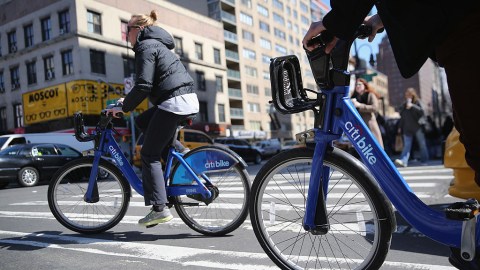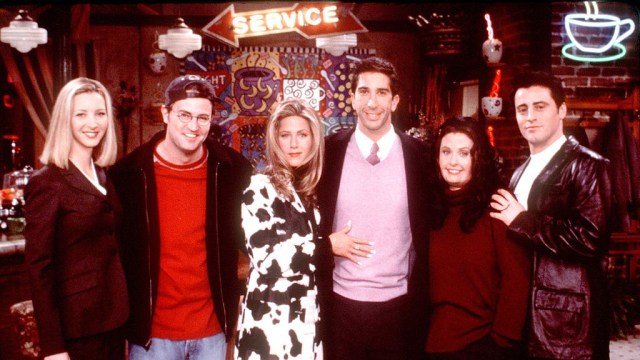Bikeshare Could Be Safer Than Your Own Bike

If you like to get places on a bike, you might have noticed that some cities are now teeming with stations where you can borrow bikes by the hour and return them to any other station in the city. Yes, bikeshare is a big deal these days, and new research shows that it may even be safer for you than riding your own bike.
Bikeshare is growing rapidly in areas such as the San Francisco Bay Area, New York City, Chicago and Washington, DC. But so far, there have been zero deaths in the US from bikeshare activities, according to research by the Mineta Transportation Institute. That could be a big deal, since the rate of deaths from regular cycling is 21 per 100 million trips taken. The difference in statistics is surprising to say the least.
What’s preventing deaths among bikeshare users? Well, no one can quite say for sure, but one theory put forward by the report is that the weight and sturdiness of bikeshare bikes help users avoid getting knocked out by potholes or other street obstacles. Another idea is that the area where the bikes are used matters. Bikeshare bikes are mainly taken around dense areas where traffic is already slow, meaning there might be a lower chance of collision or fewer injuries in the case of a crash. Or experts wonder if perhaps the lack of deaths is because the relatively inexperienced users of bikeshare might actually be more cautious in biking than their veteran counterparts.
This isn’t to say that bikeshare users never get into accidents. There have definitely been a number of serious accidents, and some say that bikeshare companies should provide helmets to their users to help prevent the worst head injuries. Whenever anyone is navigating through traffic on a bike there are risks.
A final important point in talking about bikeshare programs is to note that their benefits are not shared by all. Low income individuals and people of color are less likely than others to use bikeshare, perhaps because — as mentioned earlier — bikeshare stalls tend to get built in dense areas, often marked with dedicated bike lanes and connected to public transit. Many less-well-off people don’t live in those places and thus wouldn’t have an easy time taking advantage of the system.
So, while keeping in mind the caveats, it does look as though bikeshare use could be a pretty safe way to get around the city.
—
Header Image: John Moore / Staff





